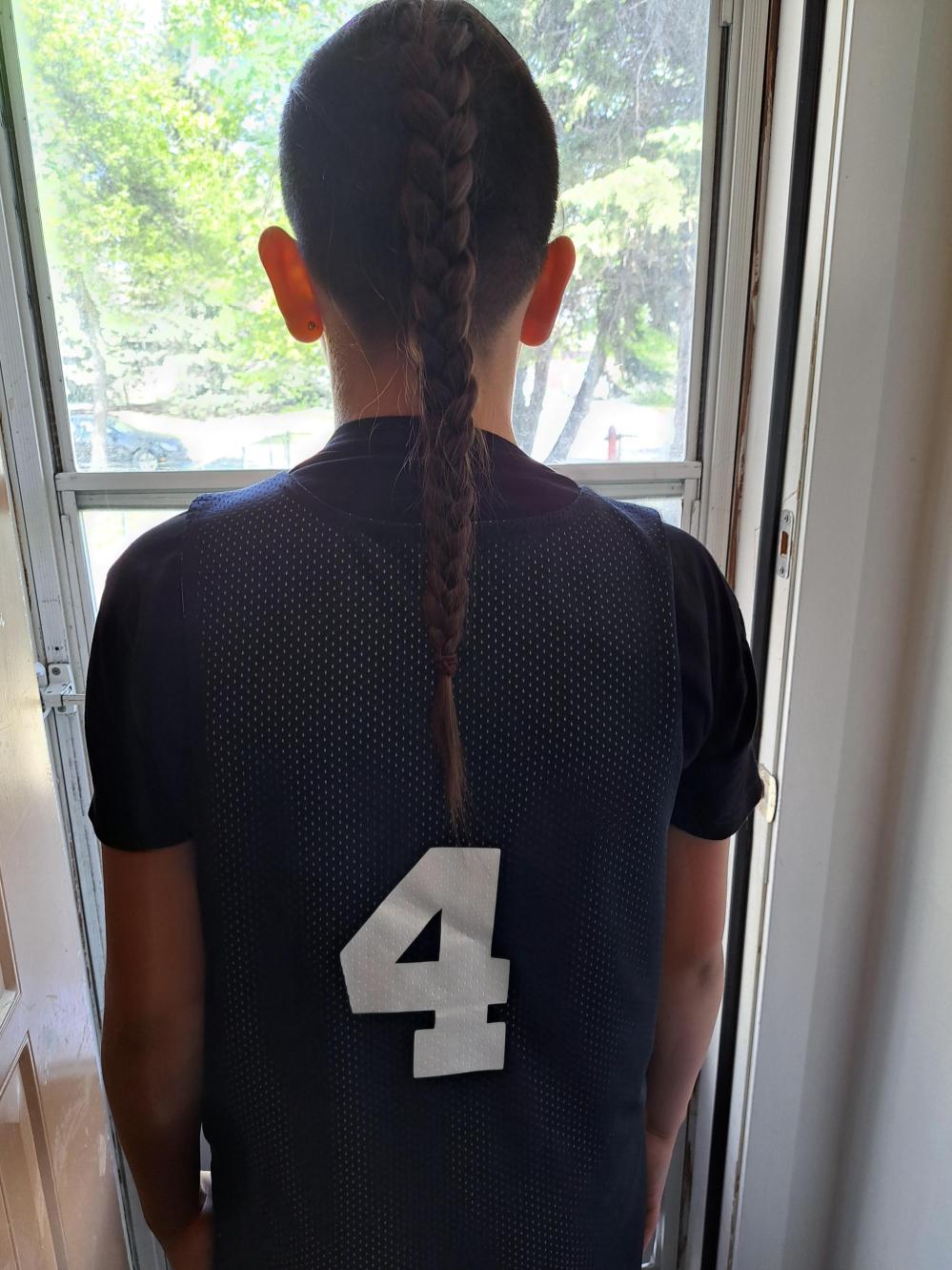Basketball players told to put long hair in jerseys, ref facing consequences
Advertisement
Read this article for free:
or
Already have an account? Log in here »
To continue reading, please subscribe:
Monthly Digital Subscription
$0 for the first 4 weeks*
- Enjoy unlimited reading on winnipegfreepress.com
- Read the E-Edition, our digital replica newspaper
- Access News Break, our award-winning app
- Play interactive puzzles
*No charge for 4 weeks then price increases to the regular rate of $19.00 plus GST every four weeks. Offer available to new and qualified returning subscribers only. Cancel any time.
Monthly Digital Subscription
$4.75/week*
- Enjoy unlimited reading on winnipegfreepress.com
- Read the E-Edition, our digital replica newspaper
- Access News Break, our award-winning app
- Play interactive puzzles
*Billed as $19 plus GST every four weeks. Cancel any time.
To continue reading, please subscribe:
Add Free Press access to your Brandon Sun subscription for only an additional
$1 for the first 4 weeks*
*Your next subscription payment will increase by $1.00 and you will be charged $16.99 plus GST for four weeks. After four weeks, your payment will increase to $23.99 plus GST every four weeks.
Read unlimited articles for free today:
or
Already have an account? Log in here »
An amateur basketball referee has been ordered to forfeit jobs, apologize and take a course on Indigenous culture after asking First Nation boys to tuck in their braids.
A minor league game at St. John’s High School in Winnipeg’s North End ended with tears and frustration for some of the young athletes and family members who were in the stands last Saturday.
Sheena Johnston said her 11-year-old was one of three players on a Central Storm basketball team who was told they had to put their long hair inside their jerseys.

When her son protested, saying his braid — a nod to his Cree and Ojibwa ancestry — could come loose while he was running, the referee told him to “figure it out,” she said.
“His self-esteem went low. His hair is his pride and joy,” the mother said, adding she was shocked and angered by the referee’s disregard for the cultural symbol.
Johnston, who has four children, had never heard of such a request in all of the years she has spent watching her children play recreational sports — including hockey, soccer and volleyball — with braids.
Concerns raised by her and other parents prompted a coach to flag the events, including the referee’s decision to grab a player who challenged a call on the court, to the league.
“Sports need to be safe places for our young people, where they are not teased about their hair or their choices to share their cultural pride. It’s not OK,” said Cheryl James, a mother of a 12-year-old on the boys basketball team.
James had to miss the game due to another commitment. She said she was disappointed to learn later on that there had been so many adult bystanders in the gymnasium.
The Manitoba Aboriginal Sports and Recreation Council, which runs inner-city recreation programs, has condemned the referee’s actions.
Co-ordinator Quinton Denechezhe told families immediate steps are being taken to promote inclusivity, protect athletes and address “the obvious miseducation and inappropriate conduct.”
“There are no rules requiring players to tuck in their braids or long hair, and such a decision is always the discretion of the player,” Denechezhe wrote in a memo Thursday.
The email states the referee assignor for the Winnipeg Minor Basketball Association has confirmed the individual in question will forfeit upcoming assignments and issue a written apology.
“The referee will take an education course on Indigenous culture to better understand and respect the cultural practices and traditions of our players,” Denechezhe said, noting he is requesting the individual register in MASRC’s “aboriginal coaching module.”
Johnston said she prides herself on braiding her children’s hair every morning — a routine during which she gives each child positive affirmations and prays with them.
Her boys wanted to grow their hair out after finding out about what happened at residential schools and learning that the braid connects a person to Mother Earth, because it points towards the ground.
Indigenous children’s braids were chopped off when they arrived at residential schools, an element of the government and church-run institutions’ mission to strip their cultural identities.
Johnston said her family wants last weekend’s events to serve as a learning opportunity for all referees, coaches and athletes.
“We can all learn from this.… Our men and our leaders and our chiefs have always had long hair, and it is just part of who we are as First Nations,” she said.
Referee assignor Reid Kenyon echoed those comments in an email.
“Our focus is on ensuring this becomes a learning opportunity for all, as we remain committed to creating a safe and inclusive environment within the game of basketball,” said Kenyon, president of the Manitoba Association of Basketball Officials.
maggie.macintosh@freepress.mb.ca

Maggie Macintosh
Education reporter
Maggie Macintosh reports on education for the Free Press. Originally from Hamilton, Ont., she first reported for the Free Press in 2017. Read more about Maggie.
Funding for the Free Press education reporter comes from the Government of Canada through the Local Journalism Initiative.
Every piece of reporting Maggie produces is reviewed by an editing team before it is posted online or published in print — part of the Free Press‘s tradition, since 1872, of producing reliable independent journalism. Read more about Free Press’s history and mandate, and learn how our newsroom operates.
Our newsroom depends on a growing audience of readers to power our journalism. If you are not a paid reader, please consider becoming a subscriber.
Our newsroom depends on its audience of readers to power our journalism. Thank you for your support.

